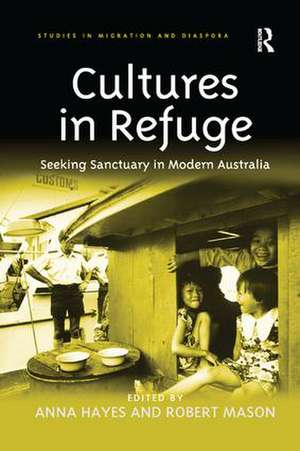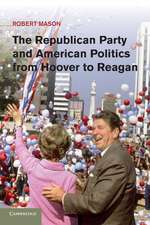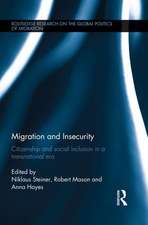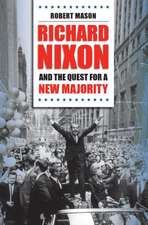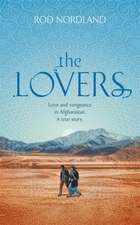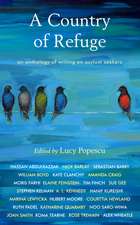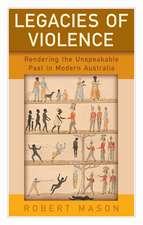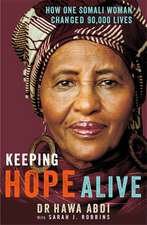Cultures in Refuge: Seeking Sanctuary in Modern Australia
Autor Anna Hayes Editat de Robert Masonen Limba Engleză Paperback – 15 noi 2016
| Toate formatele și edițiile | Preț | Express |
|---|---|---|
| Paperback (1) | 489.26 lei 6-8 săpt. | |
| Taylor & Francis – 15 noi 2016 | 489.26 lei 6-8 săpt. | |
| Hardback (1) | 1057.09 lei 6-8 săpt. | |
| Taylor & Francis – 12 oct 2012 | 1057.09 lei 6-8 săpt. |
Preț: 489.26 lei
Nou
Puncte Express: 734
Preț estimativ în valută:
93.62€ • 100.11$ • 78.06£
93.62€ • 100.11$ • 78.06£
Carte tipărită la comandă
Livrare economică 17 aprilie-01 mai
Preluare comenzi: 021 569.72.76
Specificații
ISBN-13: 9781138261600
ISBN-10: 1138261602
Pagini: 212
Dimensiuni: 156 x 234 x 12 mm
Greutate: 0.45 kg
Ediția:1
Editura: Taylor & Francis
Colecția Routledge
Locul publicării:Oxford, United Kingdom
ISBN-10: 1138261602
Pagini: 212
Dimensiuni: 156 x 234 x 12 mm
Greutate: 0.45 kg
Ediția:1
Editura: Taylor & Francis
Colecția Routledge
Locul publicării:Oxford, United Kingdom
Notă biografică
Dr Anna Hayes is Lecturer in International Relations and a researcher at the Public Memory Research Centre at the University of Southern Queensland, Australia. She is co-editor of Migration and Insecurity: Citizenship and Social Inclusion in a Transnational Era. Robert Mason is Lecturer in History and a researcher at the Public Memory Research Centre at the University of Southern Queensland, Australia. He is co-editor of Migration and Insecurity: Citizenship and Social Inclusion in a Transnational Era.
Recenzii
’By challenging the construct of Australia as a sanctuary for migrants and refugees, this outstanding collection re-conceptualises how the experience of migrants in Australia is understood. Cultures in Refuge interrogates and challenges assumptions about Australia’s multi-cultural rhetoric and policy. The limits of the imagined national community are exposed here with complexity, incisive commentary and a compelling narrative.’ Joy Damousi, University of Melbourne, Australia ’Cultures in Refuge draws our attention to the historical baggage carried both by individual migrants and by Australian society at large. I recommend this collection warmly to all those interested in making sense of this baggage also as something other than a burden.’ Klaus Neumann, The Swinburne Institute for Social Research, Australia 'Cultures in Refuge is a nuanced and informative addition to the growing literature on humanitarianism and exclusion narratives in recent Australian history. ... Cultures in Refuge is an important contribution to the relatively new (in Australia) field of refugee and displacement studies. The contributors examine select episodes in the contested politics of sanctuary and also humanise it beyond the sensationalist headlines. The topic range of the book is a major strength that also gives pause for further questioning and analysis. ... The collection's attention to individual voices personifies the experience of the home-seeker, the term Hamid Naficy used to describe displacement journeys as performances of homelessness, and the unmaking and remaking of identity in refuge homelands.' Australian Historical Studies
Cuprins
Chapter 1 Introduction Towards Sanctuary: Securing Refugees and Forced Migrants in Multicultural Australia, Robert Mason, Anna Hayes; Part I Finding Narratives of Belonging; Chapter 2 White Australia and Otherness: The Limits to Hospitality, Jane Haggis; Chapter 3 The Politics of Asylum and Identities in Exile: Negotiating Place and Meaning, Claudia Tazreiter; Chapter 4 Beyond the Rhetoric of Inclusion: Our Responsibility to Refugees, Farida Fozdar; Part II Negotiating the Shadow of the Past; Chapter 5 ‘Don’t forget you are Jewish’: Holocaust Survivors, Identity Formation and Sense of Belonging in Australia, Michele Langfield; Chapter 6 Fragmented Histories: The Intergenerational Transmission of War Memories in the Vietnamese Diaspora, Nathalie Huynh, Chau Nguyen; Chapter 7 Coalitions of Justice: Articulating Democratic Transition in Australia’s Salvadoran Community 1 The author would like to thank Dr Geoffrey Parkes and Dr Yorick Smaal for their helpful comments on an earlier draft of this chapter., Robert Mason; Chapter 8 Ascribing Identities and Negotiating Stereotypes: Case Study of Intercountry Adoptees 1 I wish to thank Dr Robbie Mason and Dr Anna Hayes from the University of Southern Queensland for their comments on an earlier draft of this paper., Richard Gehrmann; Part III Communicating Cultural Security; Chapter 9 Provincializing Perth? Satellite Television and the Chinese in Perth, Susan Leong, Qian Gong; Chapter 10 Institutional Islamophobia in the Cases of Ahmed Zaoui and Mohamed Haneef, Malcolm D. Brown; Chapter 11 Fear Online: Seeking Sanctuary in Online Forums, Anne Aly; Chapter 12 Uighur Transnationalism in Contemporary Australia: Exile, Sanctuary, Community and Future, Anna Hayes;
Descriere
Questioning the manner in which the reception of sanctuary in modern Australia changes migrants' sense of belonging, this interdisciplinary volume focuses on the disjuncture between receiving sanctuary and feeling secure in one's self and community. With emphasis on the formation and expression of migrant and refugee cultures, the book deliberately blurs the distinction between migrants and refugees, in order to engage more directly with the subjectivities of lived experience and social networks.
